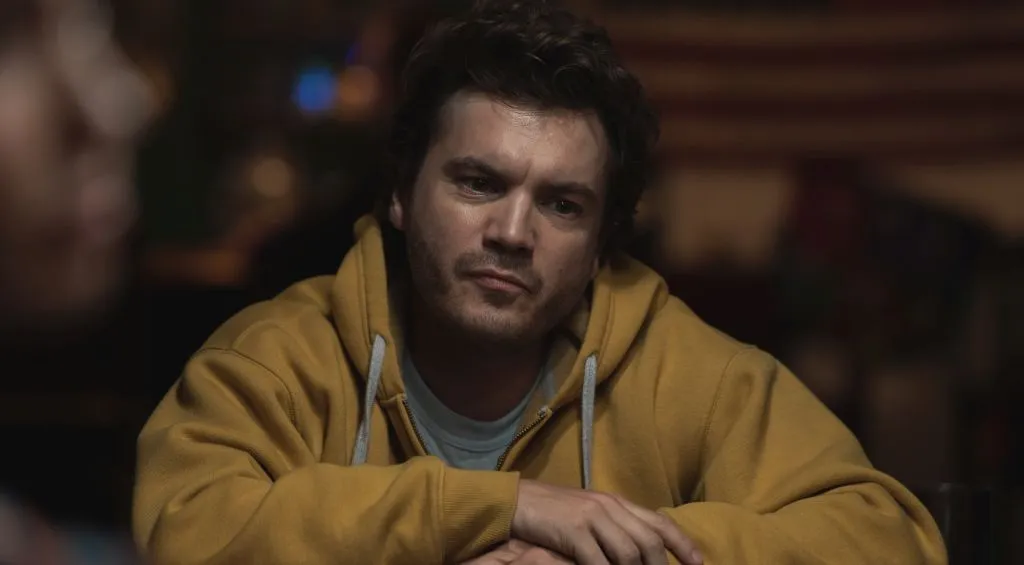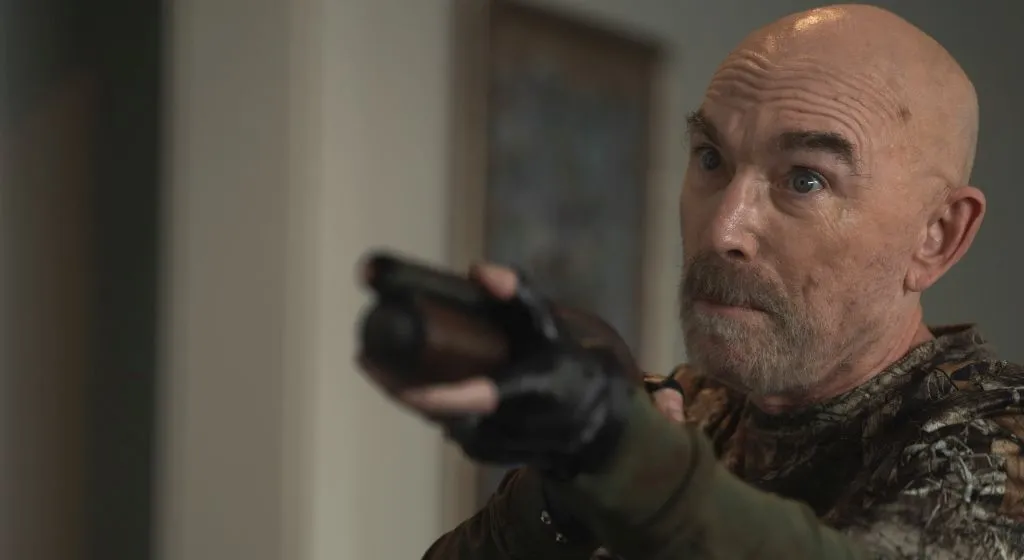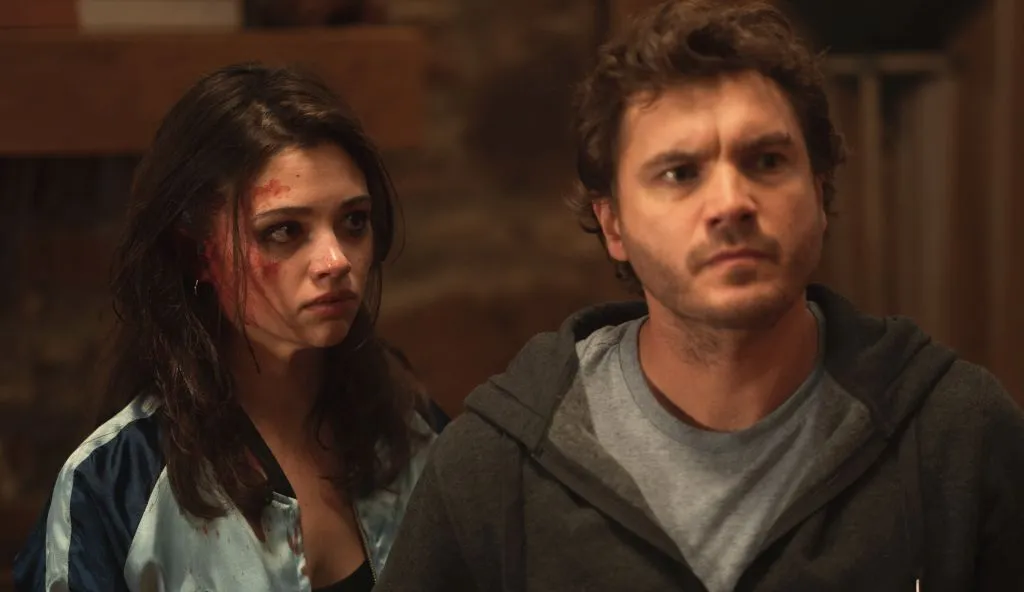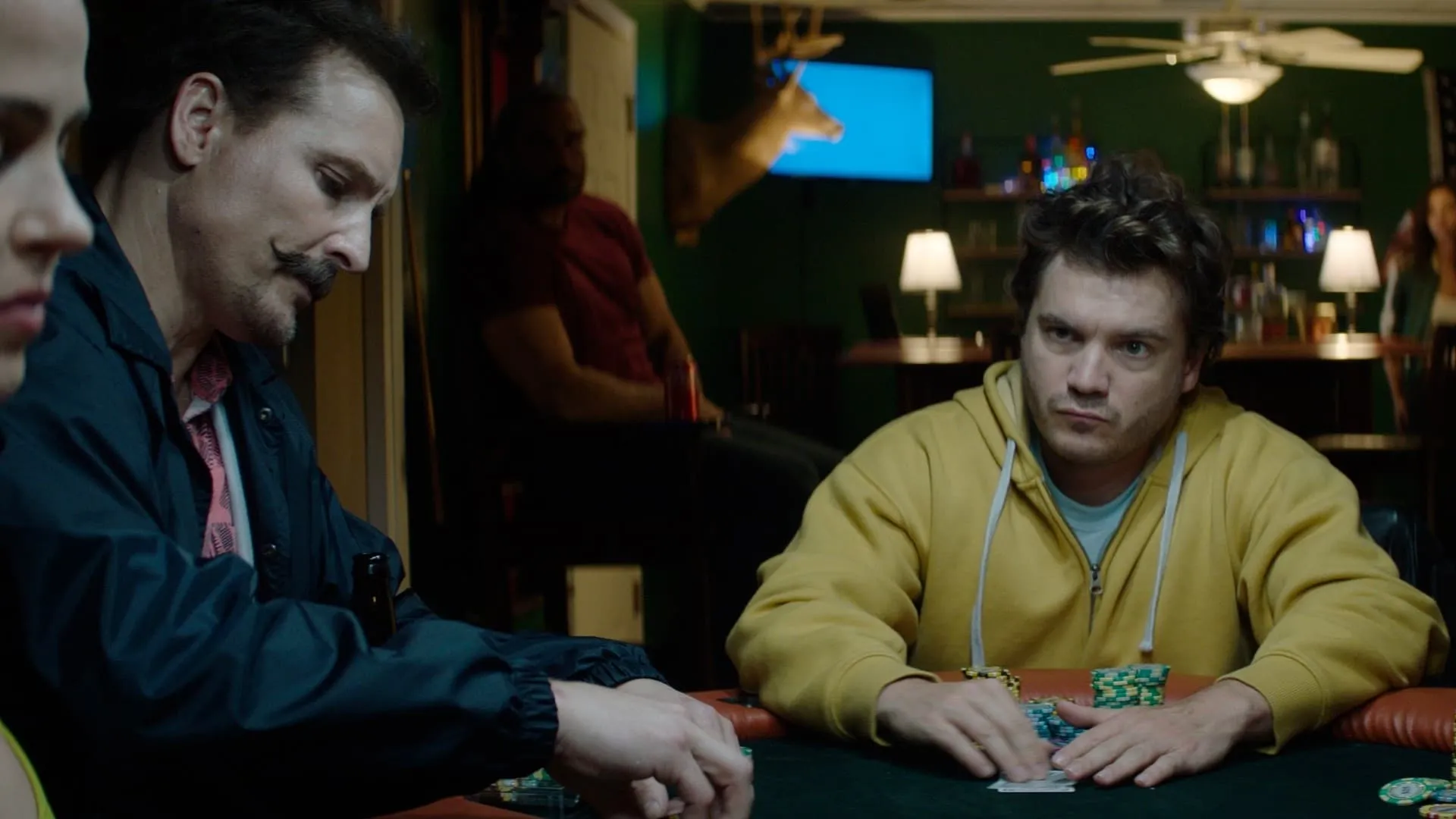“Dead Money” is a thrilling story set in the high-stakes world of underground poker. It combines the suspense of gambling with the mystery of crime. The film, which came out in 2024, is about a professional poker player named Andy (Emile Hirsch) whose life becomes very dangerous after a fairly normal game in the back room goes wrong.
The film, written and directed by Josh Wilcox, examines the very thin line between taking a measured risk and being desperate. Walpole builds a story around Andy, a skilled but suffering poker player who is in a lot of debt and always looking for that one big win that will make everything better. When Jack’s (David Keith) home poker game is taken, Andy finds a chance that he didn’t expect, which starts a dangerous chain of events.
The film’s diverse cast gives this high-wire act of a story more depth. Hirsch is in charge as Andy, and he shows how complicated the mind of a player is who is always one hand away from making it or losing it. Chloe, Andy’s girlfriend in danger, is portrayed by India Eisley, and Wendell, one of the main bad guys in the film, is portrayed by Jackie Earle Haley. The complicated plot gets even more complex when Peter Facinelli shows up as LT, a police officer with a complicated link to the poker scene.
“Dead Money” isn’t just about poker; it’s a raw look at risk, desperation, and the thin line between self-destruction and survival in the grimy world of underground gaming dens. A fairly straightforward poker game is turned into a high-stakes thriller in the film, where every deal could mean life or death.
Gambling with Destiny: A Poker Thriller Unravels
The night starts like any other in Jack’s poorly lit poker room in the back room. Andy, a skilled poker player always on the verge of bankruptcy, is sitting with a group of gamblers, including Chloe, his medical student girlfriend, working the bar. The air is tense, and players hold on to their shaky dreams.
All of a sudden, things change. Break-ins by masked thieves broke up the evening’s tense flow. They take the whole pot, which is about $200,000, leaving the other players shocked and naked. What seems to be a simple theft is part of a much bigger plan. Andy finds out that the robbery was planned by Jack, who was eager to pay off his growing debts.
When Andy sees an unplanned chance, he takes the stolen money. He should have stayed out of sight but does what all gamblers do and returns to the tables. As his winning streak gets longer and longer, the scary Faizel pulls him into a high-stakes game run. At the same time, Jack and Wendell find Andy and take Chloe hostage.
When Jack gives Andy an impossible choice: win $500,000 or Chloe dies, the stakes go through the roof. The poker table turns into a battlefield; each card could mean the difference between life and death. Andy’s skills are tested, and luck plays just as big a role as planning.
The film builds up to a climax where the kidnapping and poker game plot physically meet. Every moment is like a high-wire act of survival, and Andy has to make decisions that are either impossible or could destroy everything he loves.
Poker Faces: The Players Behind the Stakes
Andy is a skilled poker player who is more complicated than most gambling stories’ main characters. Emile Hirsch brings him to life. He’s not just trying to win; he’s also running away from his money problems. Hirsch shows Andy’s inner struggle: he is a man walking a fine line between taking calculated risks and being completely desperate. He gives a performance that feels real and raw, showing a character who is both smart and weak.
India Eisley’s Chloe is a fascinating contrast to Andy’s crazy world. She’s not a passive victim, even though she spends a lot of time on TV stuck in a chair. Eisley gives the part a quiet passion that shows how hurtful Andy’s high-stakes gambling is for people. Their relationship seems real; they are both stuck in a cycle of making choices that are becoming increasingly dangerous.
Jackie Earle Haley plays Wendell, who steals the show with a funny and scary performance. He adds wild energy that makes what could have been a normal criminal character more interesting. The film’s dark humor is wonderfully encapsulated in his aside about using his cut to start a cockfight.
David Keith’s Jack is on the shady side of underground poker. He is a man ready to plan the theft of his own game to pay off his bills. A cop played by Peter Facinelli named LT, who seems more interested in the game than in doing his job, adds another level of moral complexity.
The real magic of the film is in how these characters are connected. They’re not pure heroes or monsters; they’re just desperate people making worse choices. Every character feels like they only need one bad hand to ruin everything.
Jimmy Jean-Louis plays Faizel, the perfect high-stakes game organizer. He is quietly evil and in charge, and his appearance gives the poker sequences a real sense of danger.
What emerges is a character study that looks like a poker movie. These aren’t simple stereotypes; they’re real people who are making increasingly risky decisions. Thanks to the performances, “Dead Money” goes from being a simple crime story to a complex look at desperation, luck, and survival.
Crafting Tension: The Art of Cinematic Gambling
The direction in “Dead Money” by Luc Walpole is a tricky mix of a gritty crime story and a poker drama. He writes about the subject smoothly but ultimately shallowly, making it hard to feel real tension. The film never gets exciting despite the high-stakes situations—characters with guns pointing at each other live on the line.
Josh Wilcox’s screenplay sounds like a throwback to crime movies from the late 1990s, with dialogue and story twists that remind me of Tarantino movies. His first full-length movie tries to combine several types of stories into one, making a story that is part poker procedure and part crime thriller. The most creative part of the script is Andy’s inner monologue, which gives him strange poker insights and brings surprising humor to the tense situations.
The structural framework of the film’s story is the most interesting part. Wilcox skillfully blends two separate plots—Andy’s growing gambling adventure and the criminal’s chase—creating tension that keeps viewers slightly off-balance. Andy’s motivational show is a smart touch that makes the story more fun and gives the character more depth than expected.
But the script has trouble making the characters grow. The characters in the world seem more like genre stereotypes than fully developed people, and the conversation is colorful but not very deep. The plot frequently puts style over substance, which makes for an entertaining but ultimately forgettable film.
When Walpole and Wilcox accept the film’s inherent pulp sensibilities, they seem to do the best work. The poker scenes have an underground energy, and the criminal parts are rough and unexpected. The film tries to be a serious character study and a pure genre piece, but it never gets there.
As a result, we have a movie mix that is interesting in theory but not always well executed—a risk that doesn’t quite pay off, like Andy’s high-stakes poker run.
Betting on the Edge: Morality in the Margins
“Dead Money” is more than just a poker movie; it’s a real-life look at desperation, and each card dealing is a moral choice. The film shows how Andy’s quest isn’t about winning but about living by delving deeply into the psychological landscape of gambling addiction.
The gaming world turns into a battleground where figuring out how to read people, handle risk, and make split-second choices that could destroy everything is necessary to stay alive. Andy’s addiction isn’t made to look cool; instead, it’s shown as a downward slide in which each bet seems like a way out but is actually just another trap.
Like an electric current, tension flows through the story. In the film, routine poker games are turned into daring high-wire acts of survival. When Jack takes Chloe hostage and demands that Andy win $500,000, the stakes go beyond money and become about how far people will go to stay alive and escape their problems.
From a moral point of view, the characters live in a murky area where the lines between right and wrong are fuzzy. Andy’s theft of the heist money isn’t a clear-cut crime; it’s just a desperate way for him to stay alive. Wendell’s plan to use the money he might win in cockfights, Jackie Earle Haley’s character delivers a deeply comedic undertone that shows how people on the edges of society think.
The conversation is full of energy like Tarantino’s—it’s colorful and unpredictable and shows a lot about the characters through incredibly sharp exchanges. Characters don’t just talk; they play chess with language, with each move being either a clue or a trick.
The film has a rough, lived-in look that makes the world of underground poker seem scary. The pace is like a poker game, with periods of careful watching followed by tense, high-stakes fights.
“Dead Money” isn’t really about poker in the end. It’s more about how people make tough decisions when everything they love is on the line.
Visual Poker: Framing Desperation’s Landscape
The cinematographer, Marcus Reese, turns “Dead Money” into a visual metaphor for mental strain. The camera doesn’t just record the poker scenes; it becomes an extra person at the table and records every tiny movement and expression that could mean someone is lying or winning.
The film’s tone is meant to be soft, with desaturated colors that show how morally gray the characters are. When there are poker scenes, the tight close-ups make it feel like every hand is a life-or-death situation. Wide shots of underground gambling dens make the characters’ loneliness stand out and suggest a world where ties are as weak as a bad hand of cards.
Editing turns into a rhythmic dance that resembles poker’s unpredictable nature. Quick cuts between Andy’s face and the cards make for a thrilling scene that turns a simple game into a high-stakes psychological battle. The action scenes are simple and unpolished, with tension being more important than fancy routines.
Ambient casino noise and soft musical undertones build almost unbearable tension, an important part of sound design. Silence can be as powerful as a heated argument because it builds tension and gives the characters’ inner battles a chance to breathe.
It’s the film’s most impressive technical feat that makes Poker feel like a movie. Mathematical chance becomes pure visual poetry as the camera moves during game scenes. Each card dealt could change everything.
“Dead Money” is more than just a genre film; it’s an interesting look at how desperate people can be by using the poker table as a battlefield and the characters as strategic fighters.
Final Hand: Calculating “Dead Money’s” Odds
Ultimately, “Dead Money” is a violent, flawed thriller that wins more for its raw energy than for how well it’s put together. The film doesn’t bring anything new to the gambling drama genre. Still, it does offer an intense experience, thanks to strong performances and a willingness to look into the psychological side of high-stakes poker.
Emile Hirsch’s complex performance as Andy turns what could have been a simple crime story into an interesting character study. Viewers who enjoy character-driven thrillers that prioritize psychological stress over conventional action scenes will find the film particularly moving.
“Dead Money” is a great movie for poker fans and people who like stories with many moral questions. It’s not a royal flush but a strong hand that keeps you interested until the end. It reminds us that the journey is just as important as the result when it comes to gambling and movies.
The Review
Dead Money
"Dead Money" claims to be a movie that is rough around the edges but packs a powerful punch. The film isn't a new masterpiece but a dark and intense look at the mental world of gambling. With Emile Hirsch's captivating performance, smart writing, and tense poker scenes, what could have been a simple crime drama becomes more complex and interesting. The movie's best qualities are showing desperation without holding back, how darkly funny it is, and how it uses the poker table as a metaphor for the battle for human life. The film maintains an electric energy that keeps viewers interested despite some story inconsistencies and times of uneven pacing.
PROS
- Strong performance by Emile Hirsch
- Intense and authentic poker sequences
- Dark, engaging humor
- Compelling character dynamics
- Unique exploration of gambling addiction
CONS
- Uneven pacing
- Underdeveloped secondary characters
- Predictable plot points
- Lacks deep narrative complexity
- Some tonal inconsistencies




















































